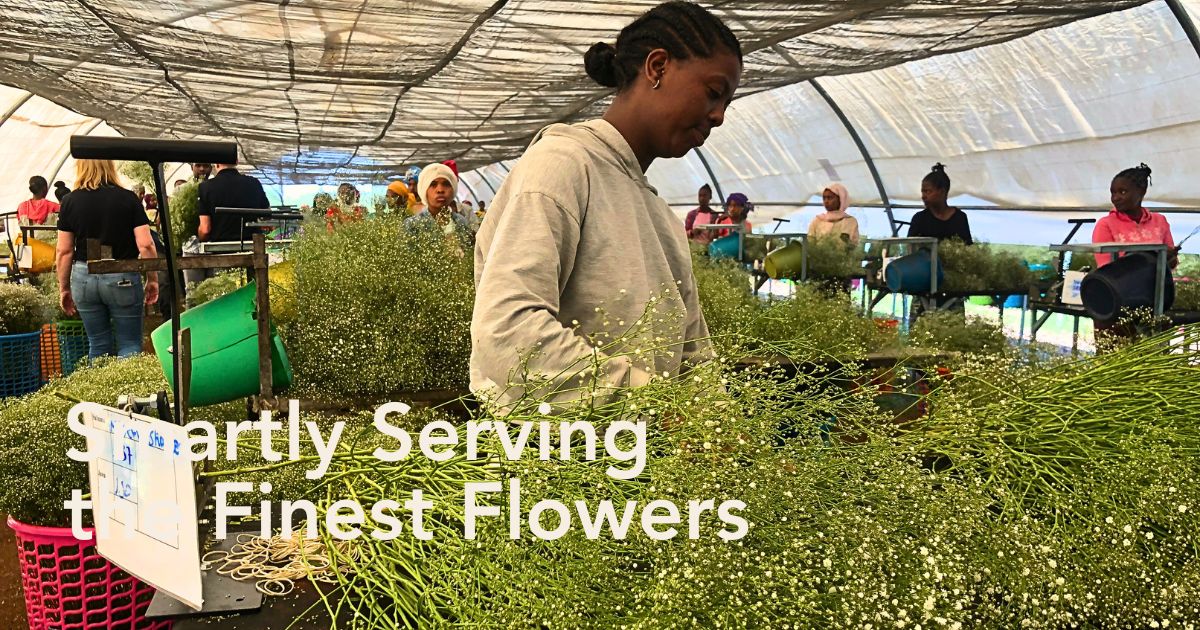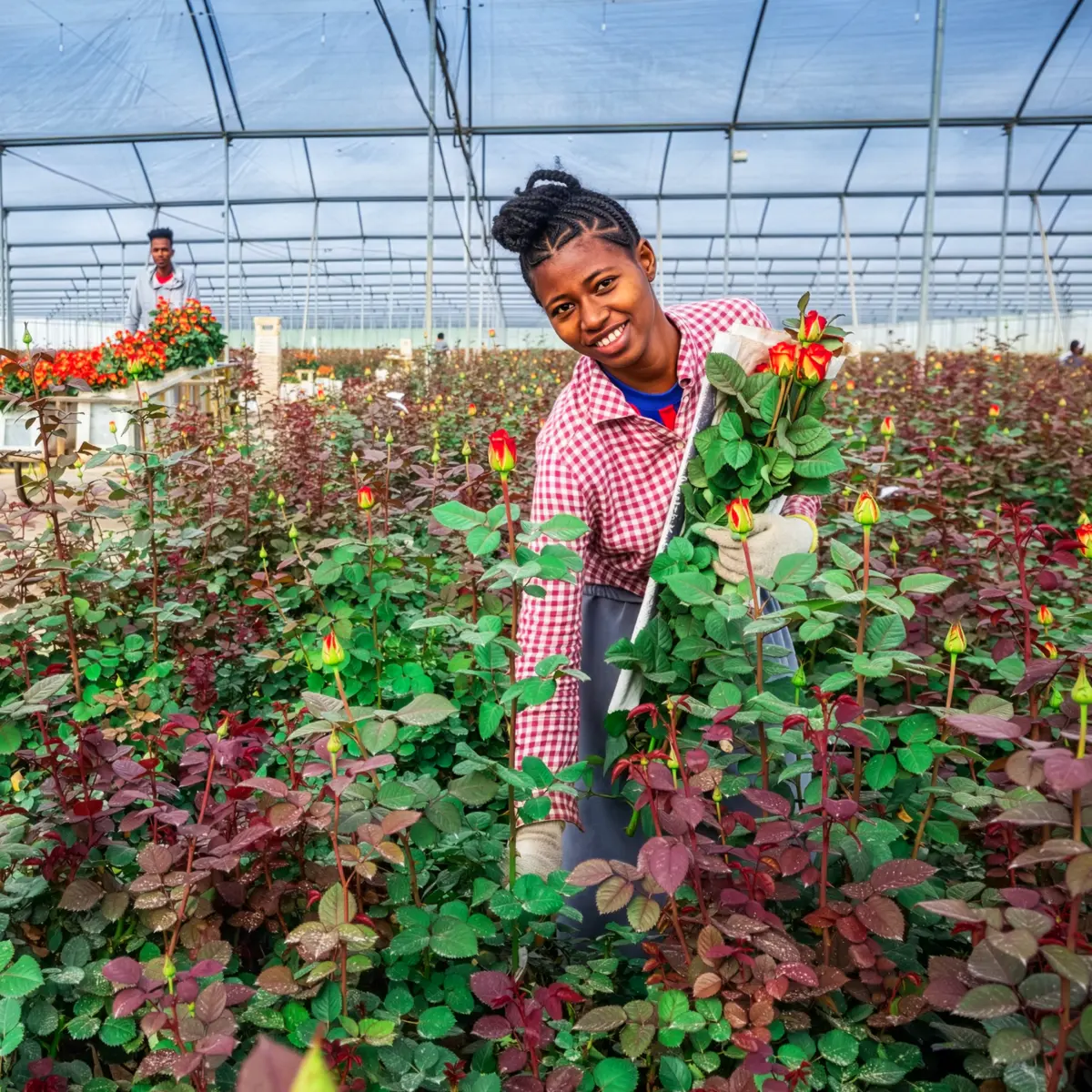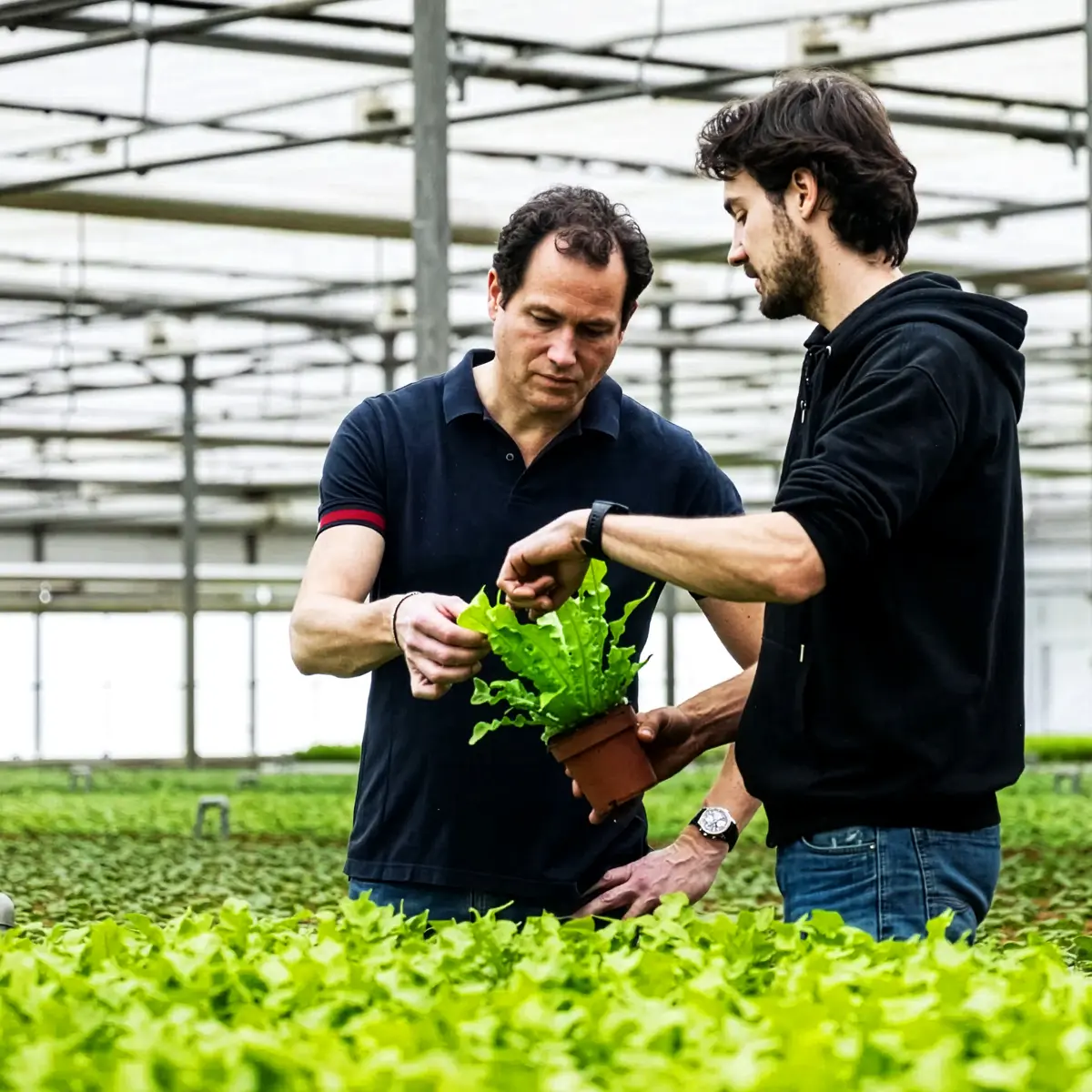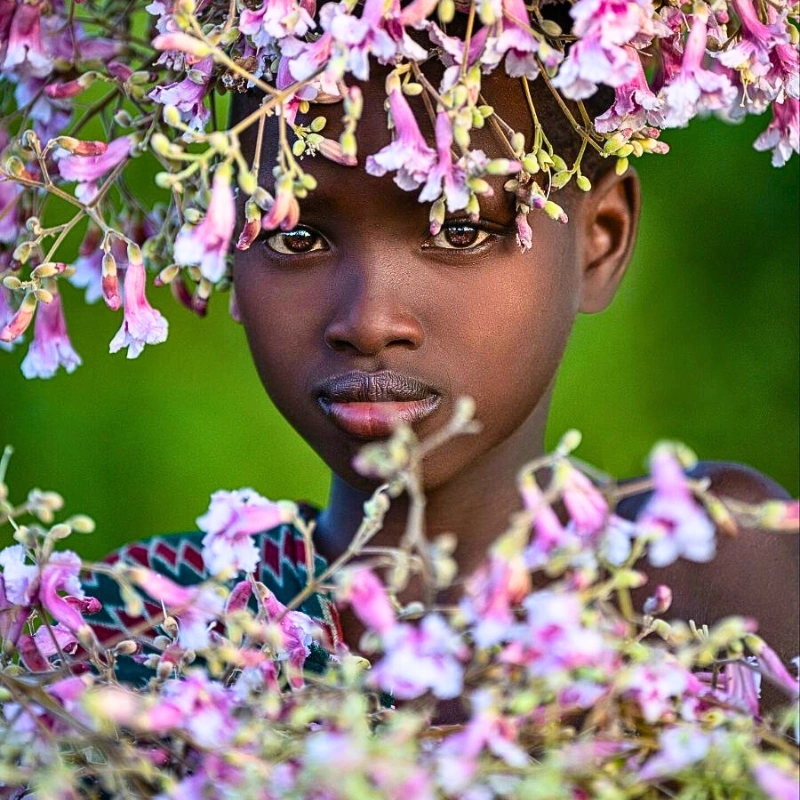Roughly 170 miles from Addis Ababa, in the heart of southern Ethiopia’s Sidama Region, Hawassa is a picturesque town located on the shores of Lake Hawassa in the country’s Great Rift Valley. Just across the lake, Wondo Tika is a small locality where the mild and moderate year-round climate is perfect for different outdoor activities. However, flowers are the keystone of the area. This explains why Klaver Flowers, the renowned Dutch flower grower, identified the ideal conditions for the expansion of their flower production operations in Ethiopia, incorporating summer flowers into their assortment. And, with the tagline 'Smartly serving you with our finest flowers' as part of its mantra, Klaver Flowers lives up to its billing, delivering the freshest and finest flowers one would think of, and within the least amount of time possible. As a florist, designer, or retailer, you can therefore count on them, and for a good reason.
A Floral Feat Within Eastern Africa’s Floriculture Landscape
Nestled within these Ethiopian highlands' settings, Klaver Flowers has proven itself as a premier flower producer, blending Dutch horticultural expertise with Ethiopia's ideal growing conditions. Through innovation, quality management, and sustainable practices, the grower has remarkably transformed the region’s flower landscape in an incredible venture—a bold expansion that makes the grower the leading Gypsophila producer on the continent.
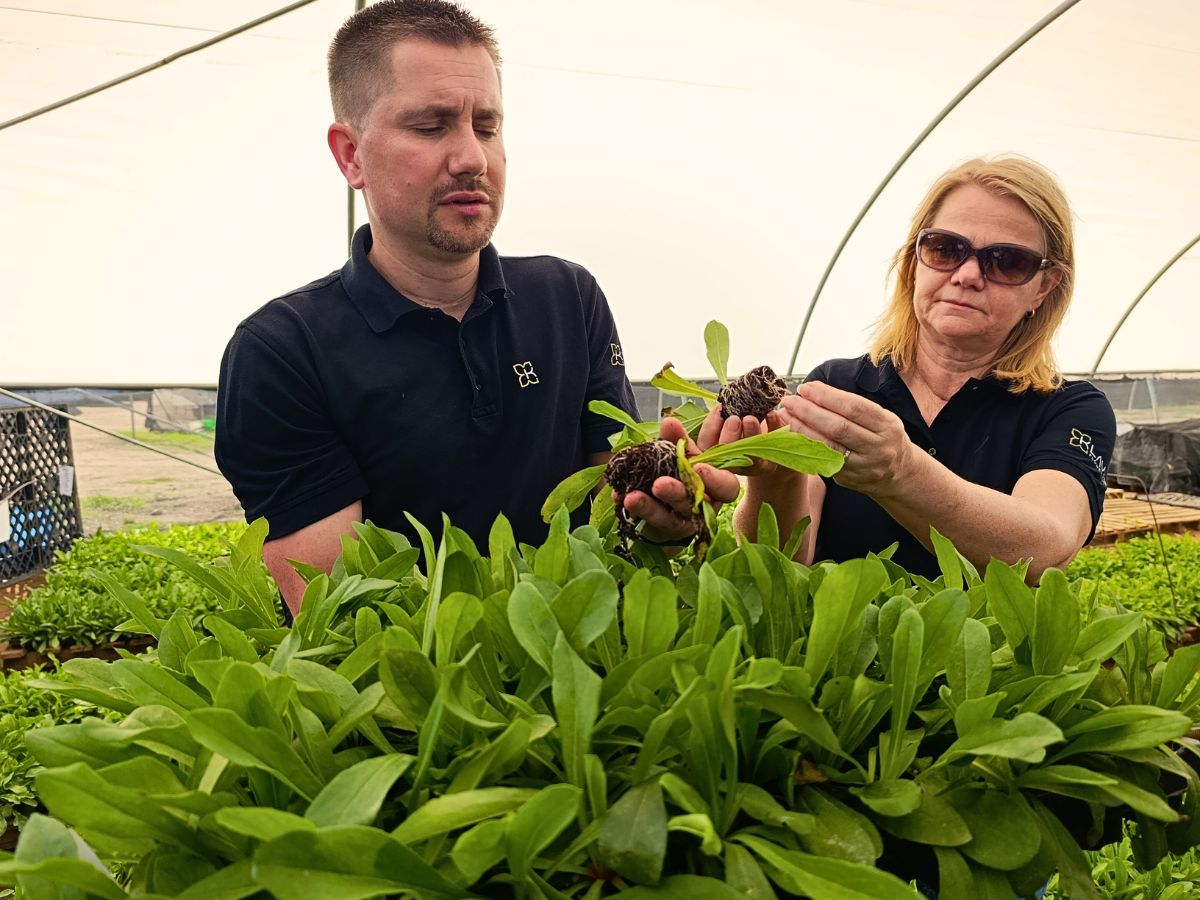
Originally established as a Dutch family flower business renowned for lily cultivation before strategically expanding to Ethiopia in 2007, Klaver Flowers now operates from two key locations: a premium lily flower production facility in Heerhugowaard, Netherlands—housed in the country's largest continuous greenhouse complex spanning 14 hectares and specializing in lily cultivation—and their 120-hectare Wondo Tika farm in Ethiopia, whose operations are managed by Gulilat Bekele, and where roughly 90 hectares are under active flower cultivation.
When initially venturing into Ethiopia, the grower attempted to introduce lilies, their traditional specialty. However, this proved far from ideal, particularly regarding transportation from Ethiopia to European markets, in combination with other factors. This challenge prompted a crucial strategic shift to Gypsophila cultivation, which suited local growing conditions and export logistics better. The adaptive decision laid the foundation for subsequent success in African floriculture.
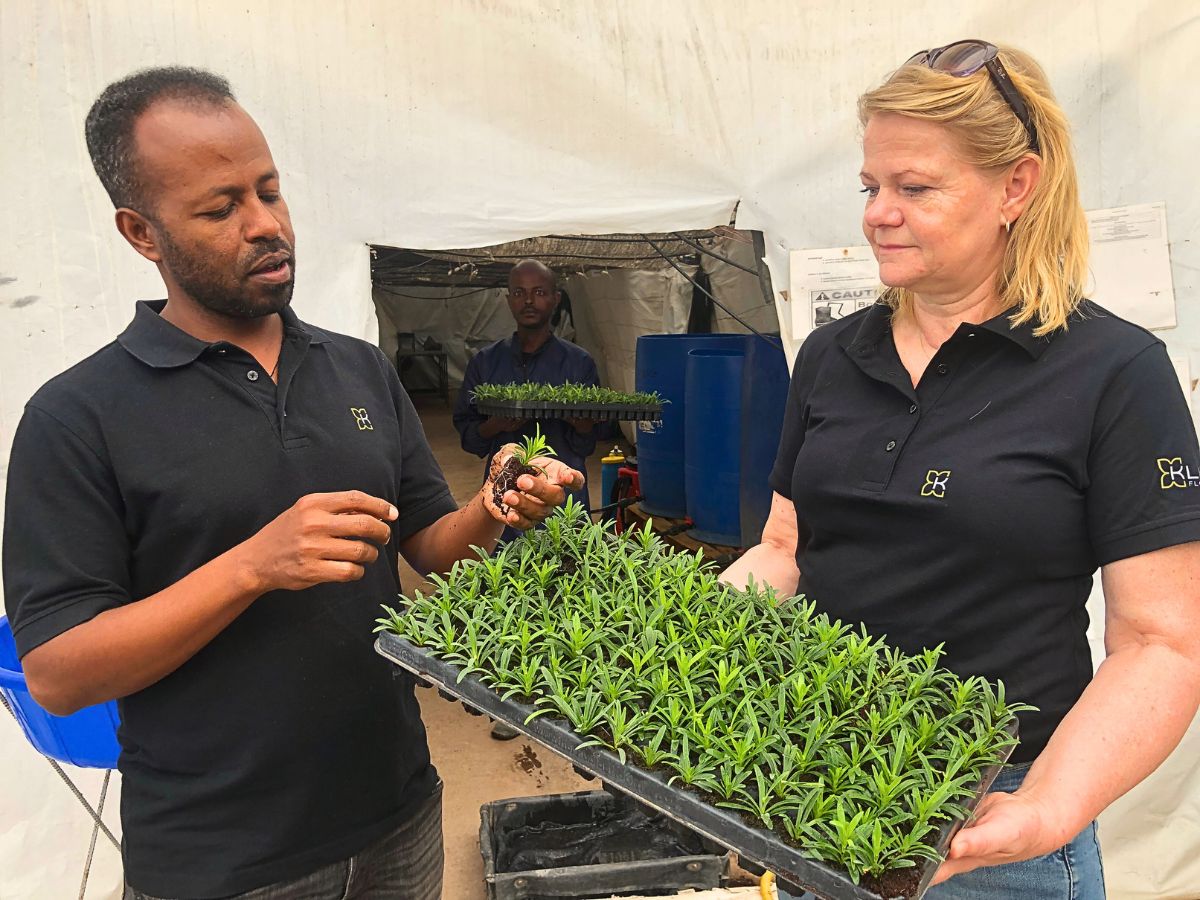
Why Ethiopia? One may ask. Well, for starters, this was because Klaver Flowers is principally recognized for their get-up-and-go attitude. In search of the right opportunity, Ethiopia offered everything the grower needed to build something sustainable—the land, the climate, and the people all combined to offer the ideal qualities. The intentional selection of the location proved instrumental in their growth to become a continental leader in summer flower production.
Production of a Diverse Range of Summer Flowers
Klaver Flowers’ Ethiopian operations have developed a diverse portfolio of summer flower varieties specifically suited to the unique growing conditions of Hawassa. Their production includes Gypsophila, Limonium, Craspedia, and Moluccella, as well as continuing trials for the gradual introduction of Delphinium, Statice, Veronica, Lepidium, and Helianthus.
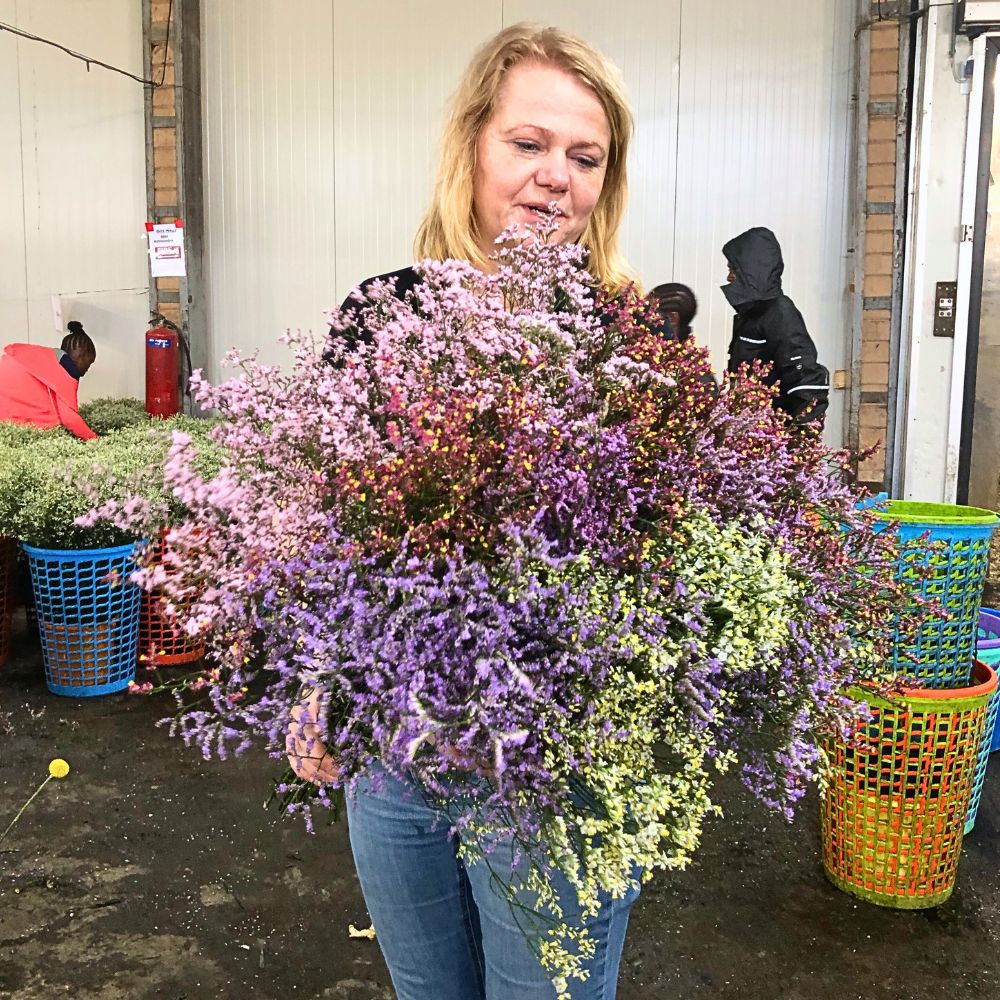
It is noteworthy that the grower acquires the mother plants for their flowers from breeders, such as HilverdaFlorist, Danziger, and Selecta Cut Flowers, and performs the propagation and multiplication at the facility in Hawassa. This ensures they have sufficient and quality planting material throughout the year and cuts numerous other costs.
The grower’s success in Gypsophila production arises from a combination of natural benefits and innovative practices. Ethiopia’s climate enables continuous Gypsophila-growing cycles, removing the necessity for artificial heating or lighting. The flower farm has dedicated 60 hectares to Gypsophila, cultivating varieties such as the small-flowered Gypsophila Zinzi Discovery, alongside the large-flowered Gypsophila Xlence®—which is particularly prized for its large, cloud-like flowers and durability even during transportation—and the cloud-like white flowered Gypsophila Grandtastic.
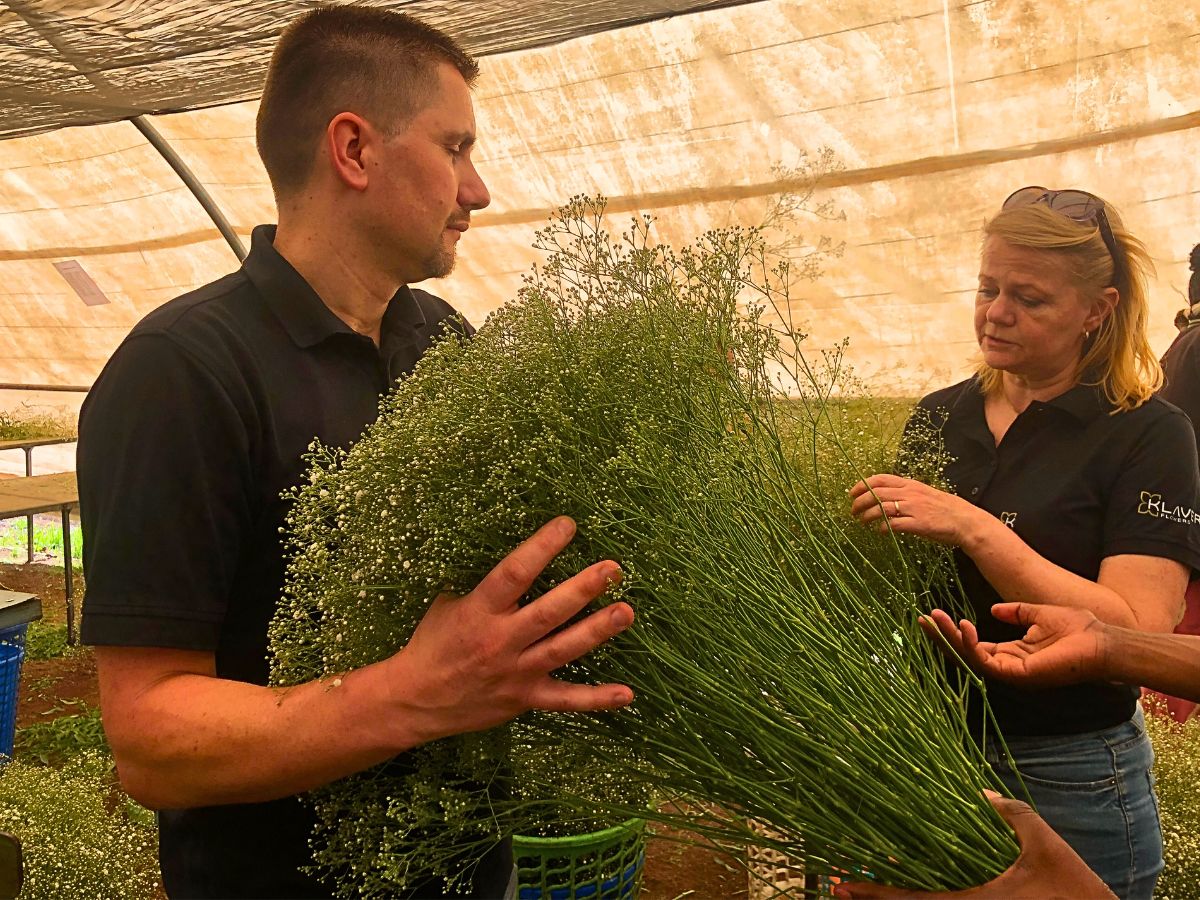
Complementing their Gypsophila achievement, Klaver Flowers has also become Ethiopia's largest supplier of Limonium. After extensive testing, they introduced various varieties, including Limonium China Lemon, Limonium Dark Blue, Limonium Lilac, Limonium Oshi Pink, Limonium Piuma Sky, and Limonium Skylight, as well as the Diamond series which incorporates varieties like Limonium Scarlet Diamond, Limonium Tiffany Diamond, Limonium Blush Diamond, and Limonium Clear Diamond. Approximately 20 hectares of Limonium are currently under cultivation.
This deliberate diversity was implemented for a good reason. Limonium is a logical choice as it complements the cultivation and processing of Gypsophila well. Additionally, the crop rotation practiced by the grower benefits the soil, and Limonium is well-suited for this practice in this context. The grower produces up to 20 million Limonium stems annually.
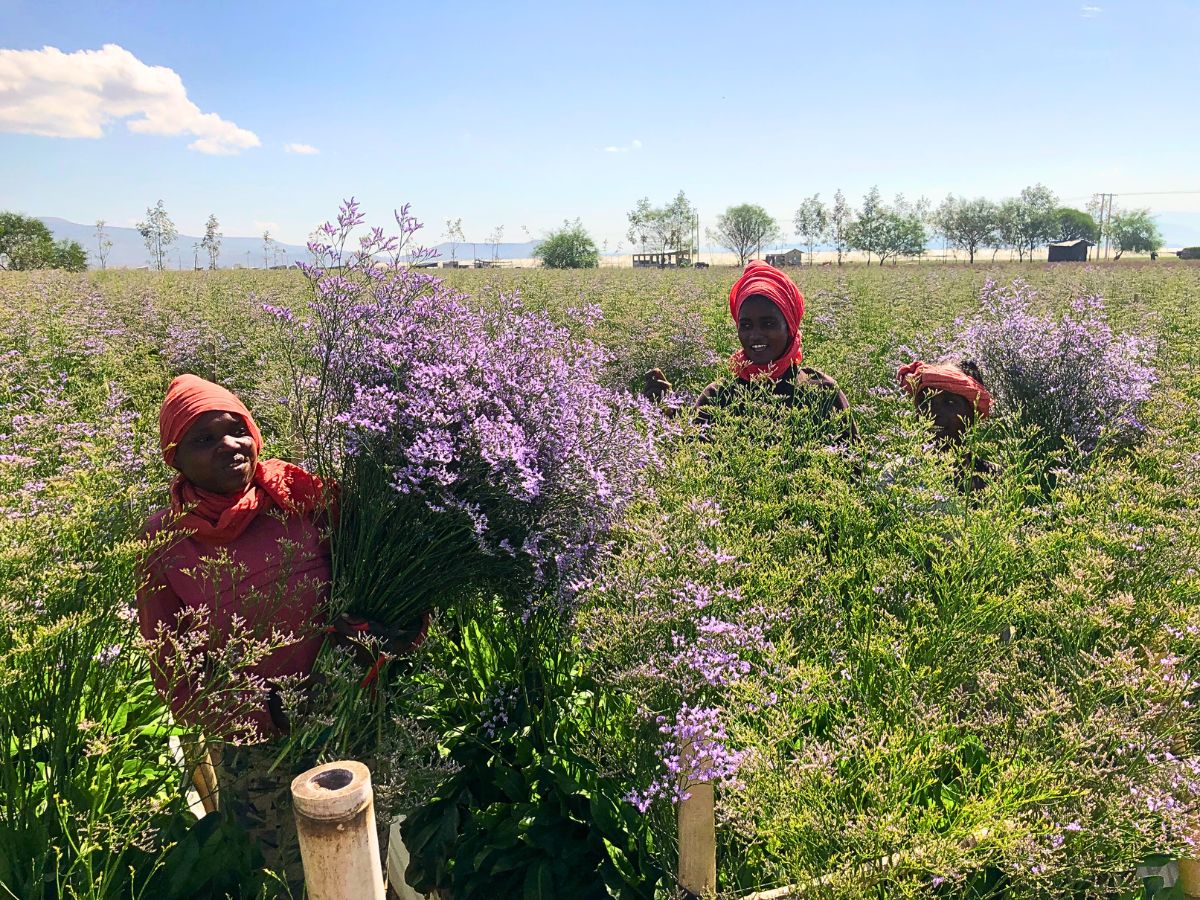
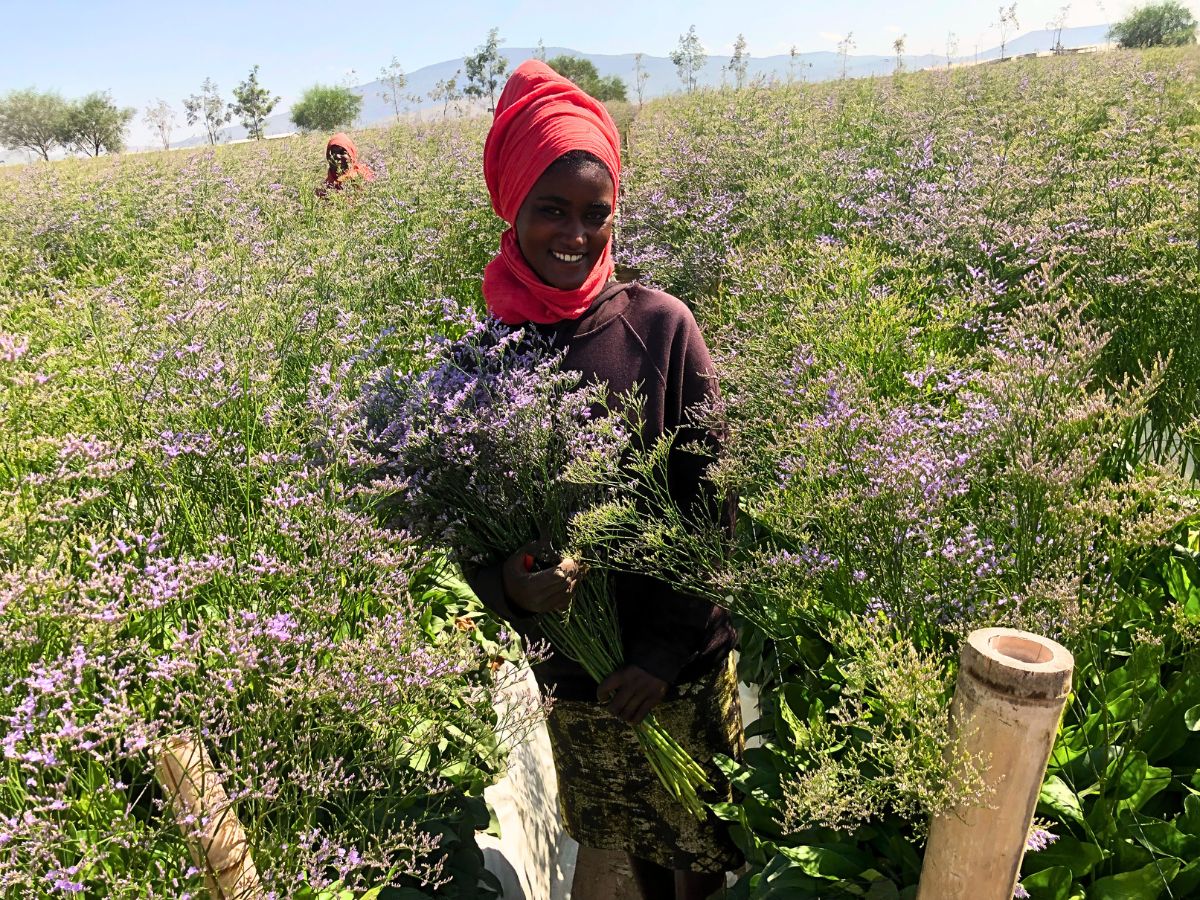
Grown on five hectares, Craspedia is another flower adding diversity to the grower’s admirable range in Ethiopia. Moluccella, a recent addition to their portfolio, is also a notable variety in their portfolio, with plans for its steady volumes by July 2025 and eventual year-round supply
The Largest Gypsophila Producer in Africa
Several interlinked factors underpin Klaver Flowers' distinction as Africa's largest Gypsophila producer—and a leading regional producer of other varieties. These factors highlight the grower’s comprehensive approach to floriculture. First, Klaver Flowers’ strategic choice of Hawassa provides optimal growing conditions. The Ethiopian highlands offer consistent temperatures, ample sunlight, and a suitable altitude—ideal conditions for premium Gypsophila cultivation. These climatic and ecological advantages form the substance of their quality production.
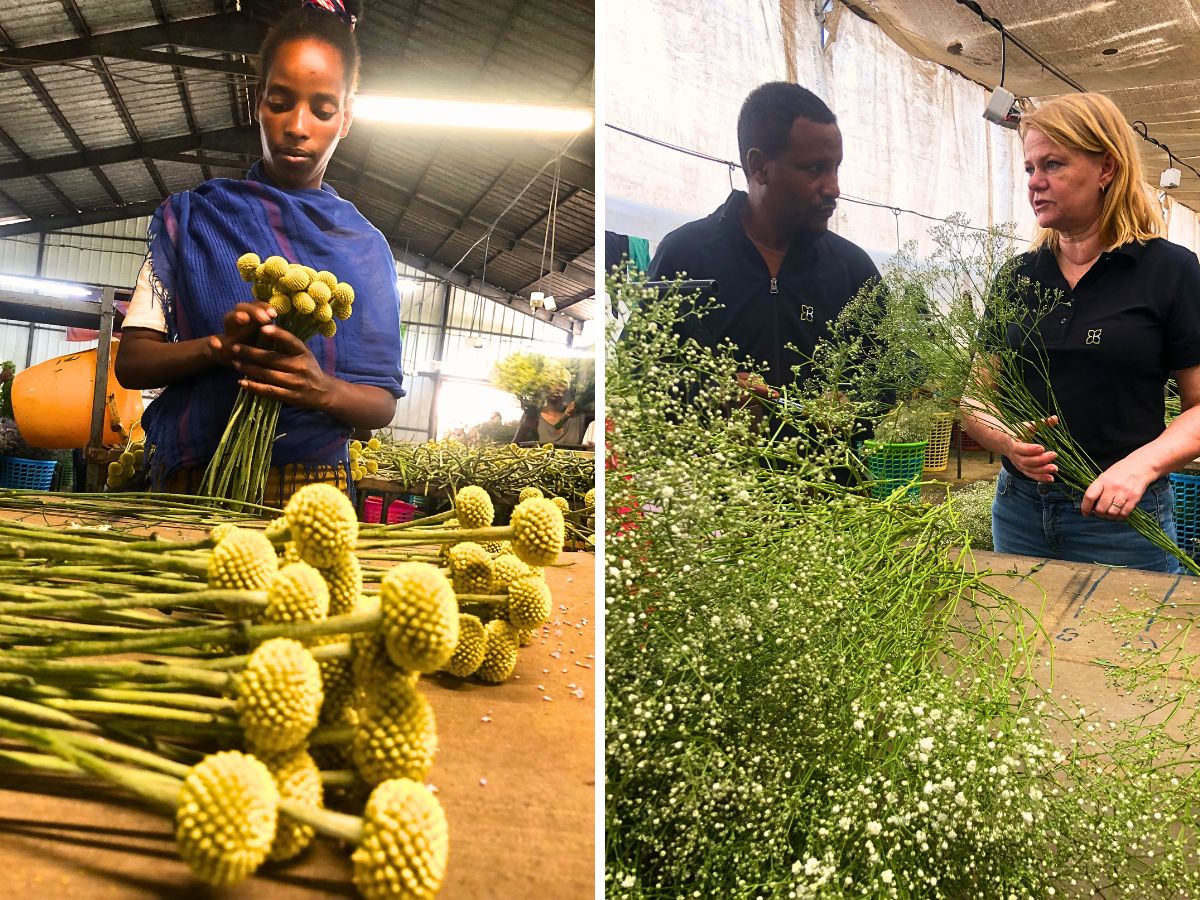
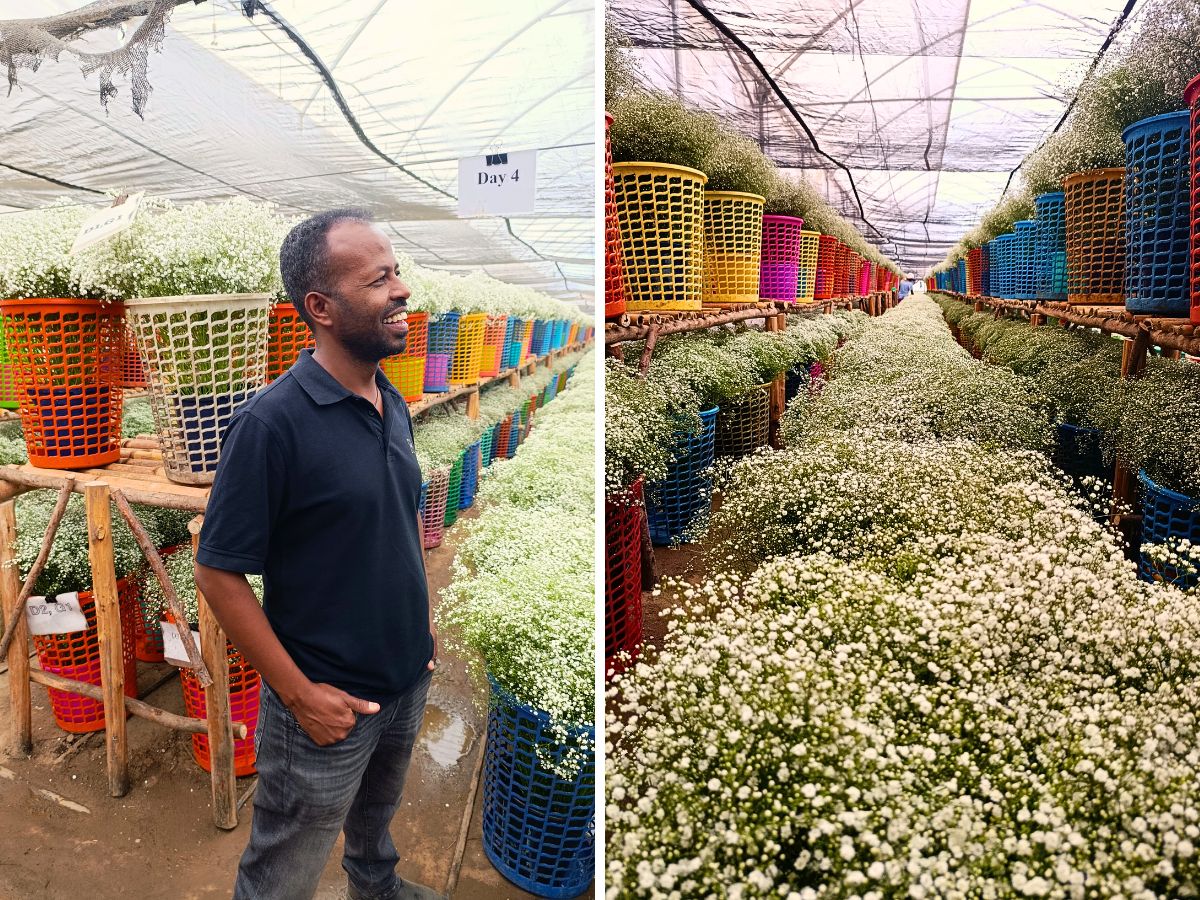
Secondly, rigorous and demanding quality control permeates the entire flower production operations. The grower’s CFO, Lydia Klaver, notes that throughout the production chain, quality checks are conducted multiple times, from the flowers’ propagation to their dispatch to the airport for market delivery.
Lydia Klaver:
“Our flowers are always recognizable by the white and golden sleeve with our logo, which guarantees quality. This is a commitment that extends from planting through harvesting and processing, ensuring consistency for our customers.”
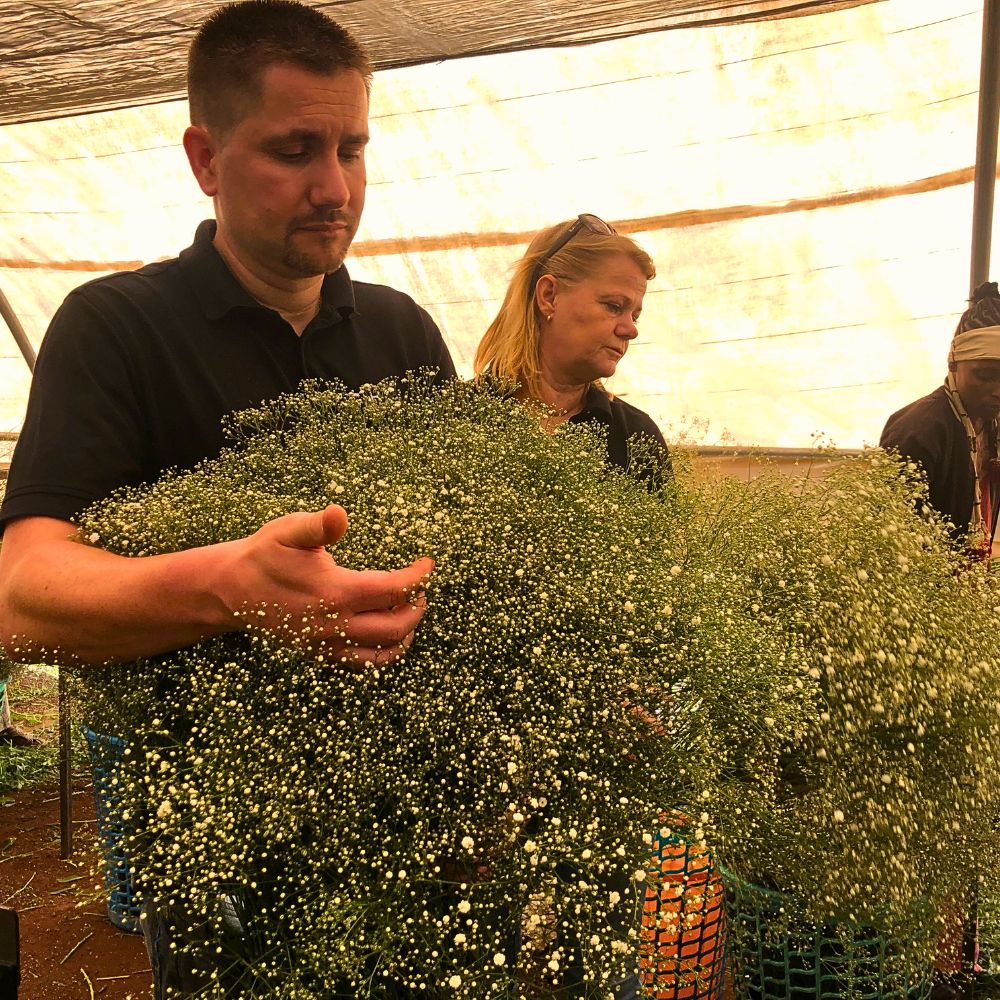
Third, their substantial production scale—about 60 hectares of Gypsophila production and 50 million stems annually—enables them to satisfy significant market demand while ensuring year-round supply stability. The large volume, combined with quality and freshness, certainly makes them stand out in the competitive flower market. Furthermore, their commitment to adopting unique and distinctive varieties, such as Gypsophila Zinzi Discovery and Gypsophila Xlence®, allows them to differentiate their floral products and capture premium international markets.
The Importance of Sustainability and Community Integration
Sustainability is one of the most important elements of contemporary floriculture. Today, more than ever before, buyers demand sustainably produced flowers, just as environmental conservation necessitates sustainable floriculture practices. Flower production at the Klaver Flowers farm in Wondo Tika, therefore, thoroughly considers the ideals of sustainable floriculture, along with worker welfare and community engagement.
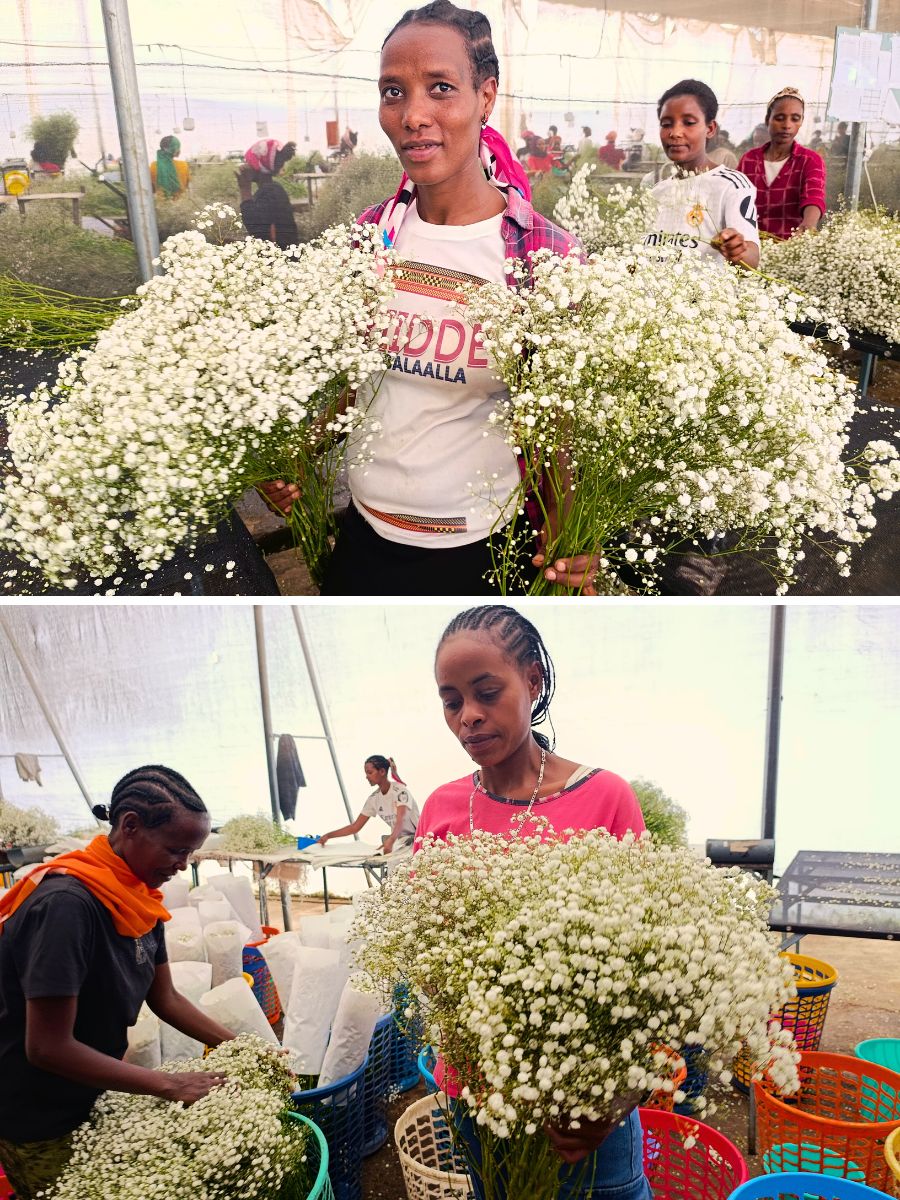
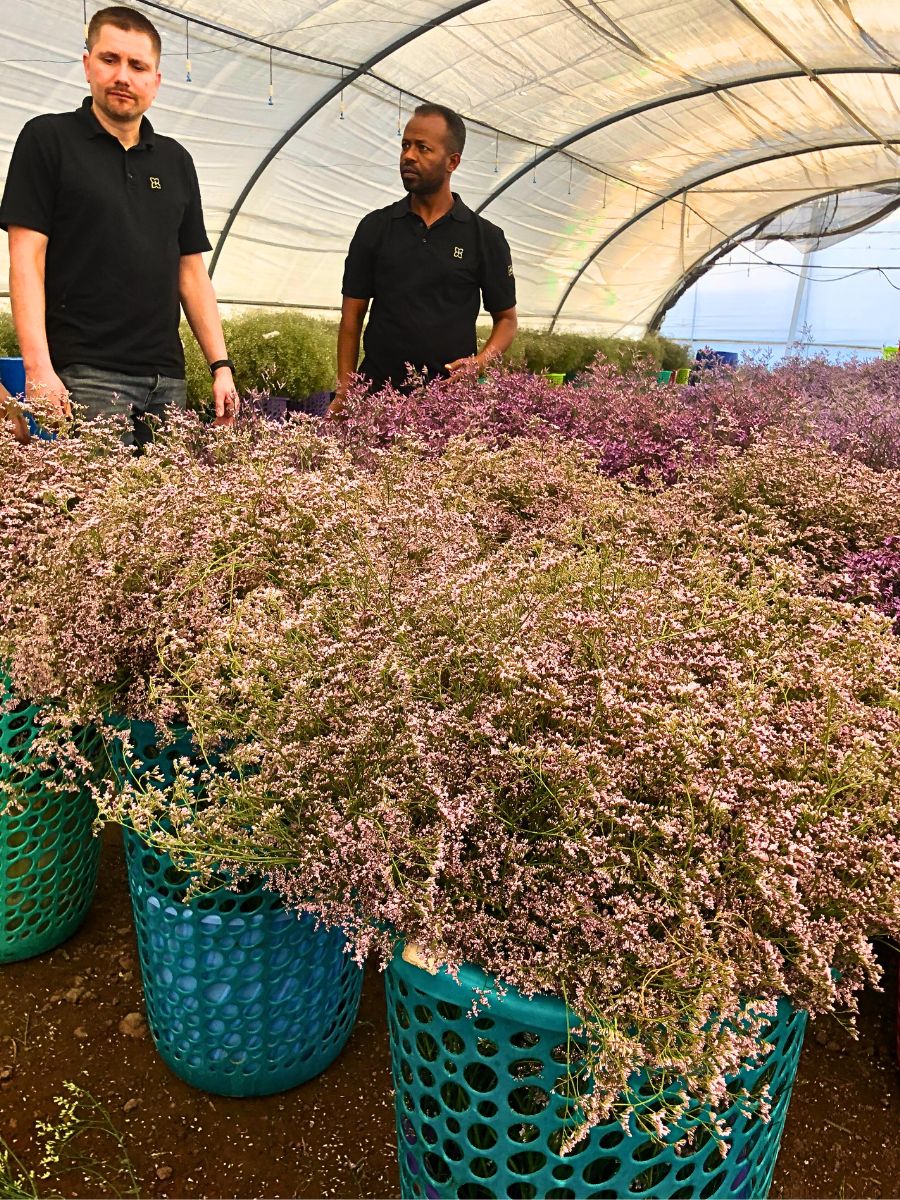
Their flower cultivation methods also reflect ecological consciousness. The implementation of crop rotation between Gypsophila and Limonium is specifically identified as good for the soil, which is a pointer to the grower’s guarantee to maintain soil health and long-term productivity of the land. This also helps prevent soil depletion and reduces dependency on synthetic inputs.
A Floriculture Sustainability Initiative (FSI)-compliant flower farm, Klaver Flowers adheres to the GlobalGAP benchmarks, holds the Social Code of Practice (Silver) accreditation from the Ethiopian Horticulture Producer Exporters Association (EHPEA)—also called EHPEA Code of Practice Silver—and also has the MPS-ABC certification. All these make evident the grower’s commitment to sustainable flower cultivation, responsibility for the environment, and provision of fair working conditions for their 2,150 staff members, many of whom are women.
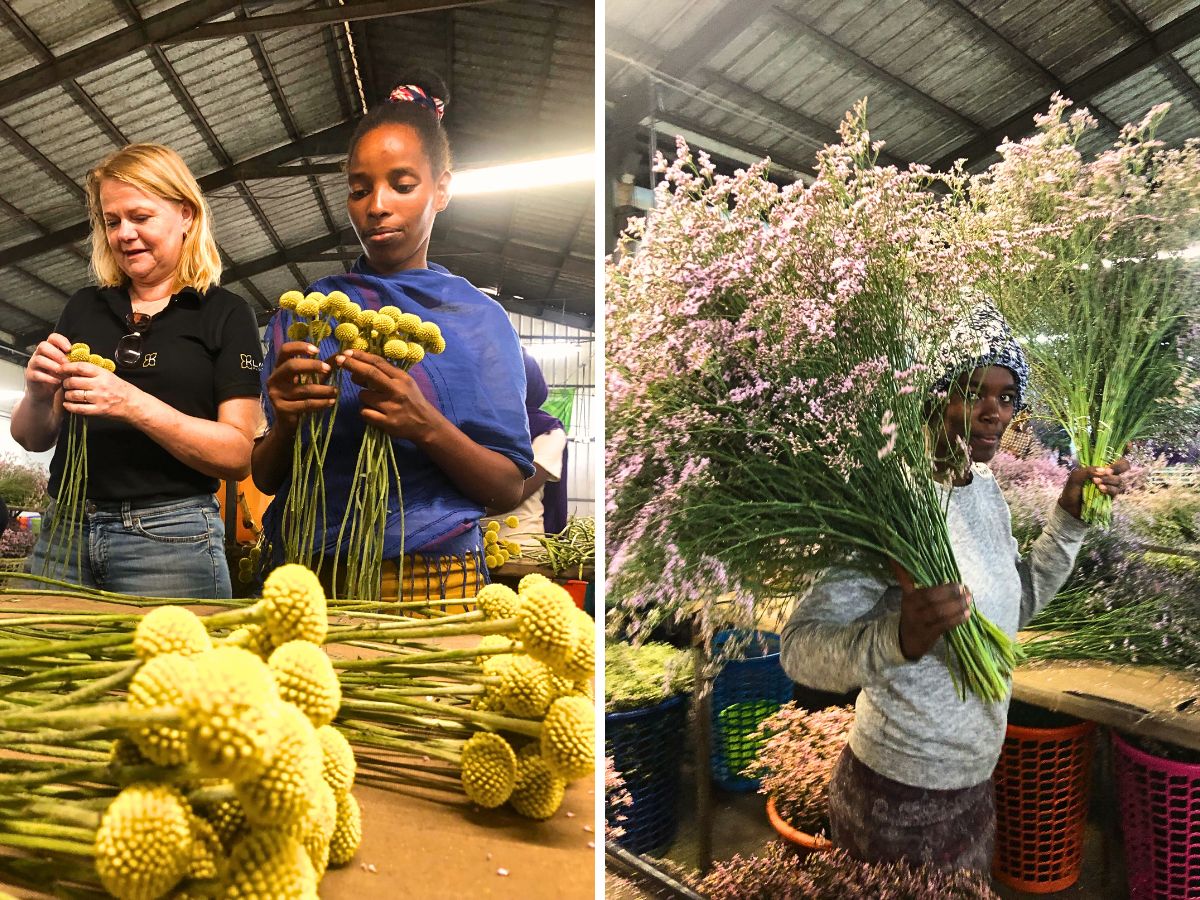
The grower maintains these appropriate certifications confirming their sustainable approaches, with every one of their developments contributing to their becoming a more climate-neutral grower, according to the CEO, Gert-Jan Klaver. He reiterates that it is their comprehensive sustainability vision that guides their operations and even future planning.
Plus, their international logistics chain, which involves delivering harvested stems to the Netherlands, where they are processed by Alkemade Hogewoning Flowers before distribution, guarantees that flowers reach the customers fresh and whole. This elaborate operation requires precise timing and rigorous quality control measures to ensure freshness upon arrival in European markets.
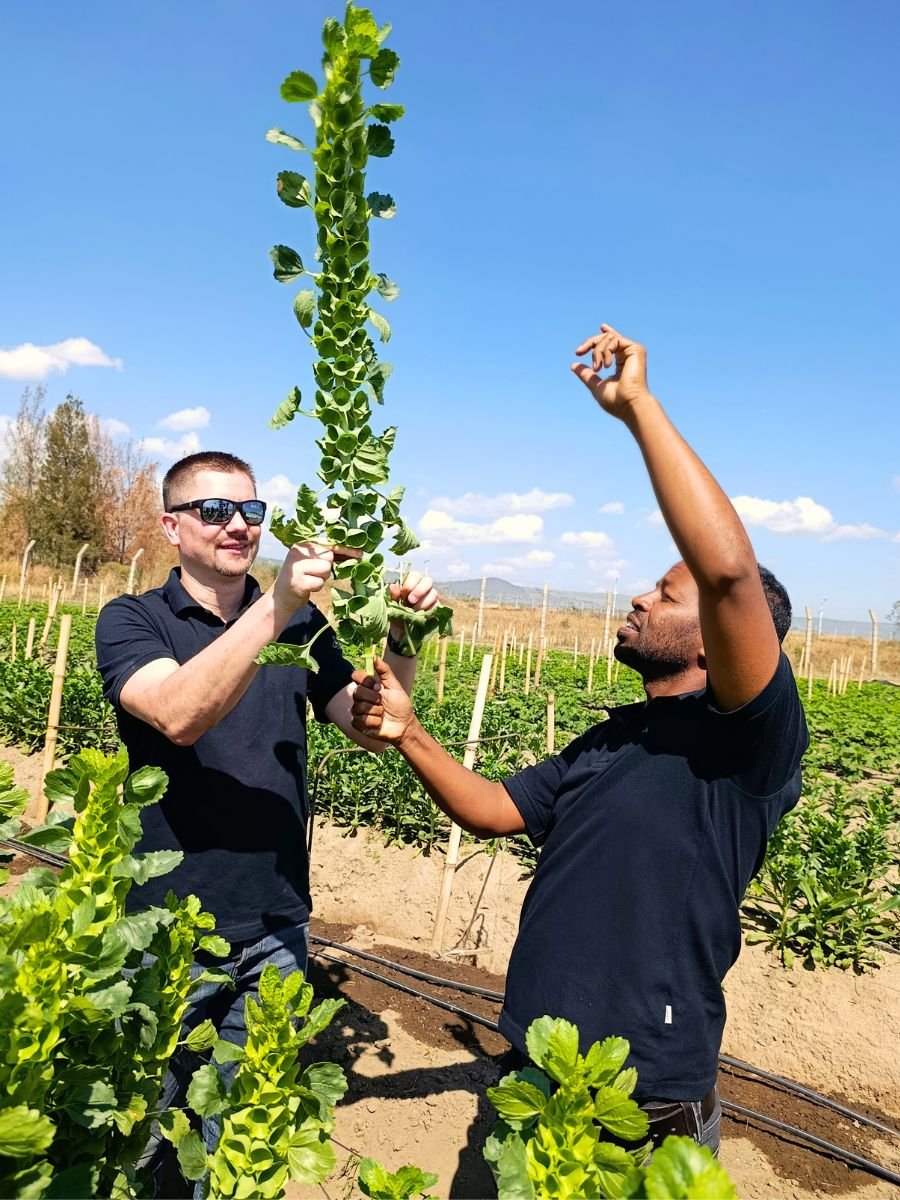
Their workforce, surrounding community, and neighborhood are other key areas of focus for the grower. Klaver Flowers actively participates in different activities and initiatives that benefit the community around their flower farm.
Danny Koppes, the COO at Klaver Flowers notes:
“Klaver Flowers provides for and sponsors several projects and services both on the farm and outside within the local community. We, for instance, support the local health center and have even sponsored school students from the community. There are numerous other initiatives.”
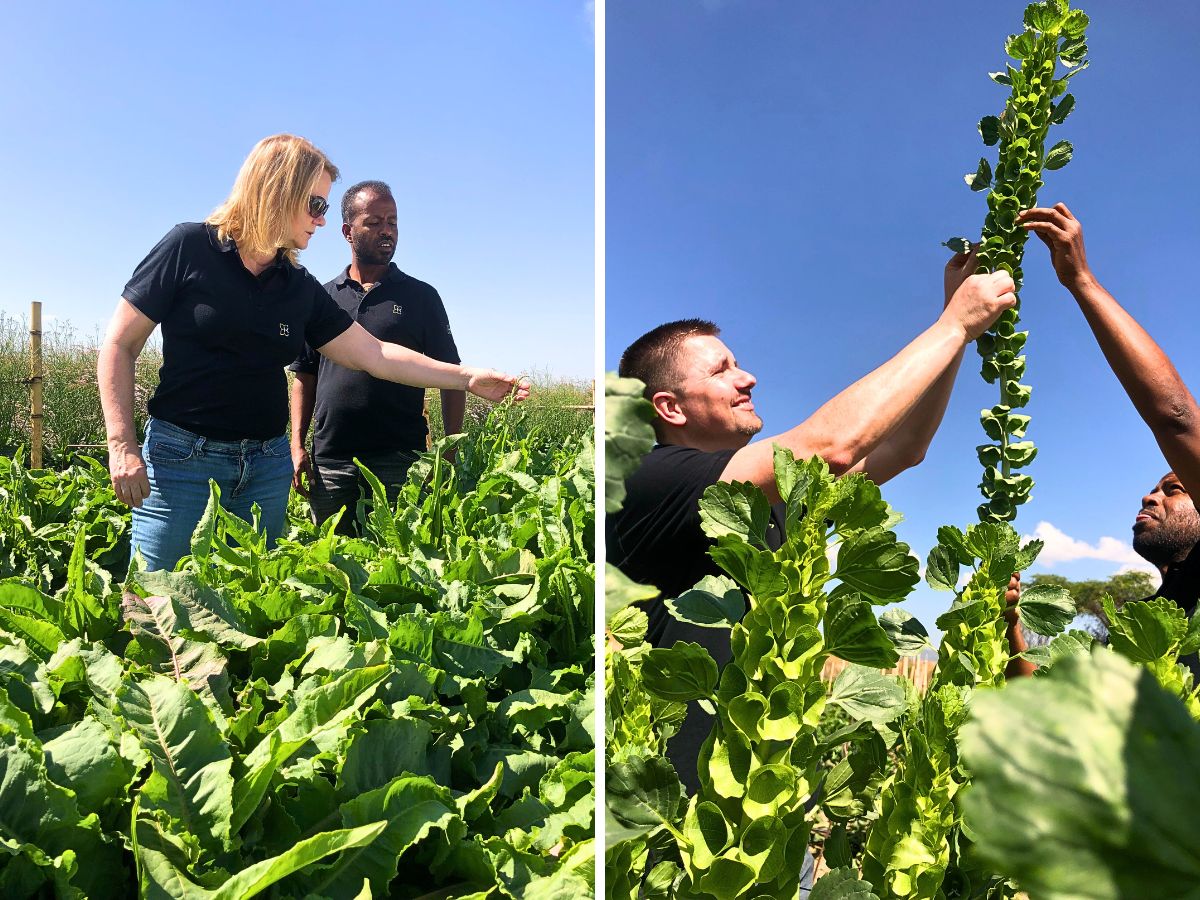
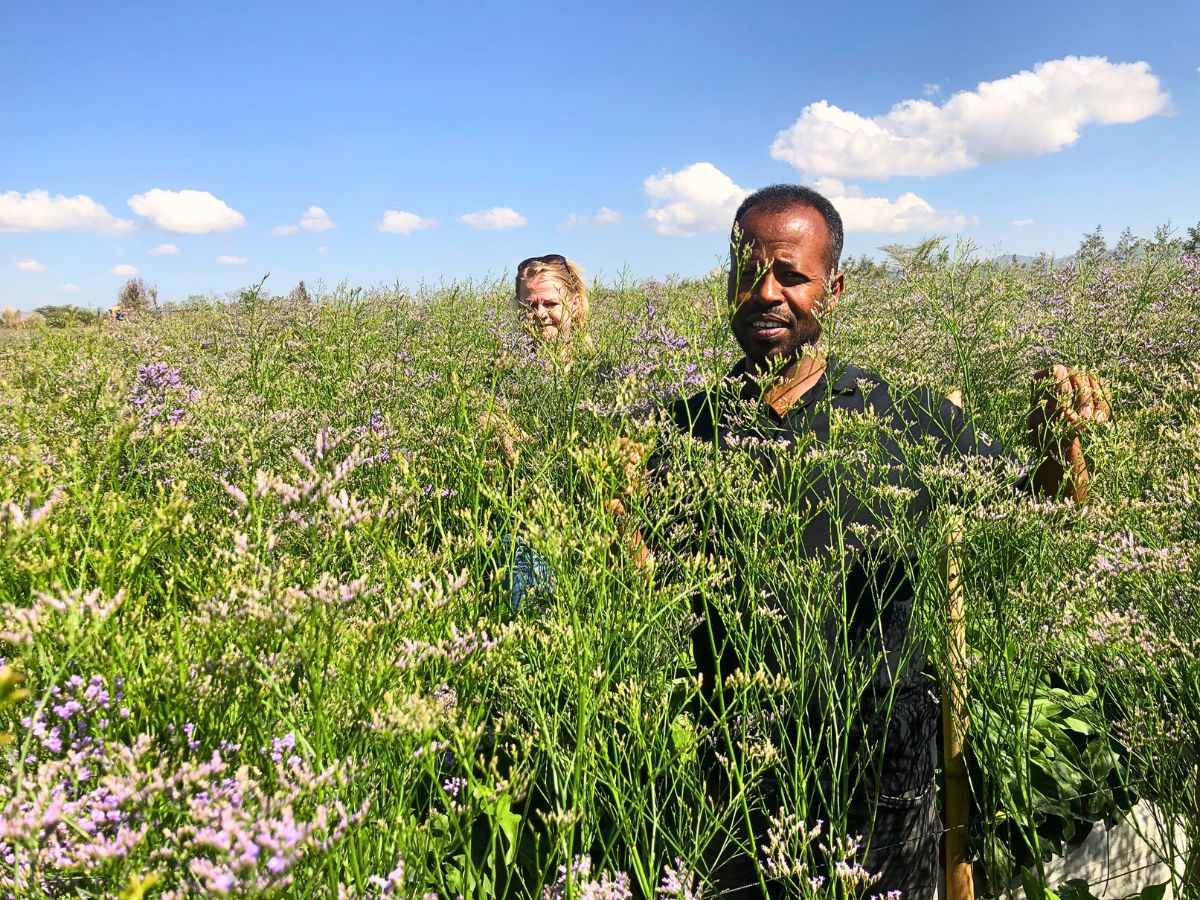
Klaver Flowers also acknowledges that its success in the Ethiopian flower industry greatly relies on its relationship with the employees and the local community. From the beginning, they intentionally embraced a collaborative approach, partnering with the Hawassa community to cultivate more than just flowers.
Their community-minded philosophy shapes employment practices, with the grower emphasizing that their staff take responsibility and understand their roles in the different processes. According to Lydia, this also extends to their participation in community festivities and events, often inviting the elders to join in the celebrations they host for their staff on the farm. The main event for the employees usually happens every September.
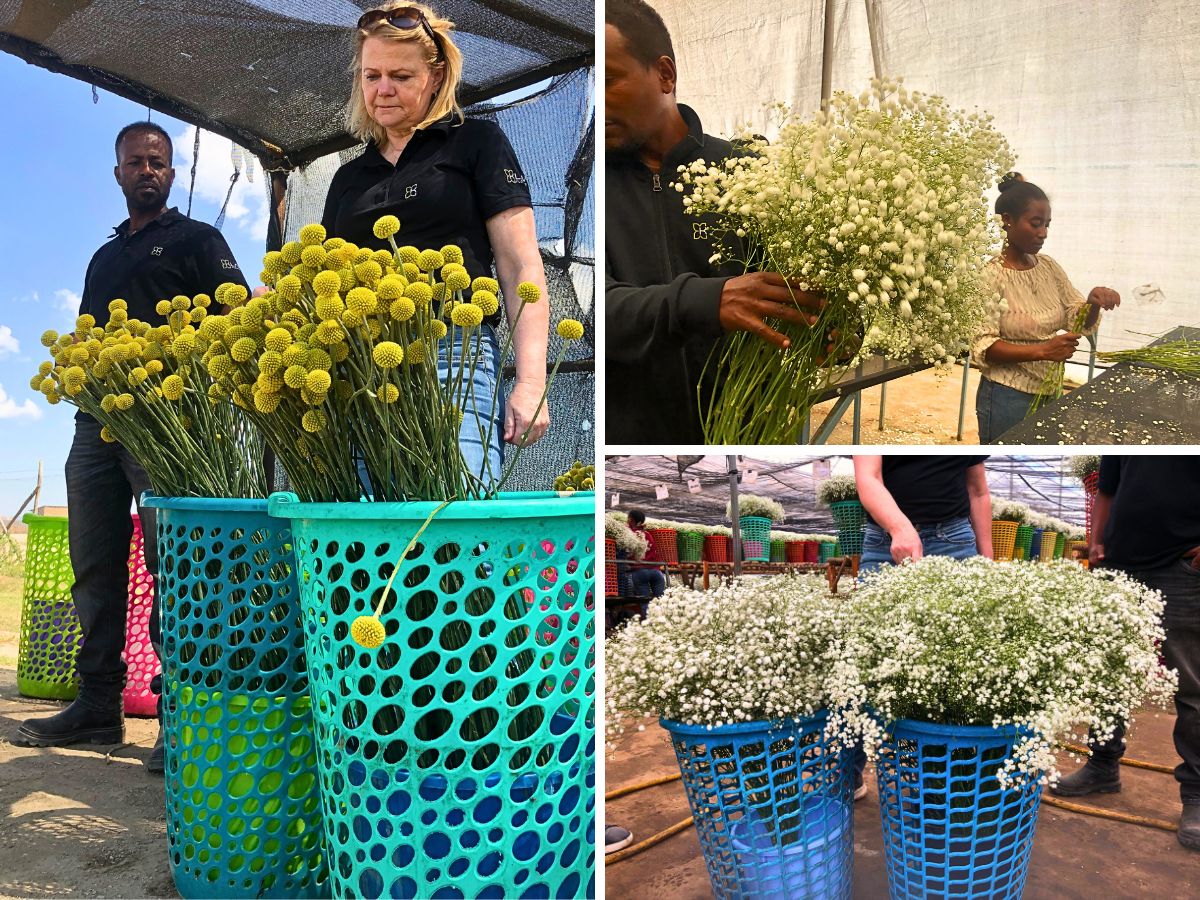
Strategic Growth With a Purpose
Klaver Flowers' vision for their Ethiopian operations mirrors a balance between expansion and quality maintenance. Rather than pursuing growth for its own sake, their approach is characterized as a strategic puzzle designed to benefit not just their clientele but also the community and, ultimately, the environment and landscape.
In the near term, the grower plans to expand their assortment and varieties with the introduction of more floral offerings into their portfolio, as well as expanding their acreage in the coming years to increase their quantities even more, addressing the market demand while stabilizing supply. Delphinium, Statice, Veronica, Lepidium, Unicorn, and Helianthus are some of the varieties the grower looks to fully incorporate in their assortment in the future.
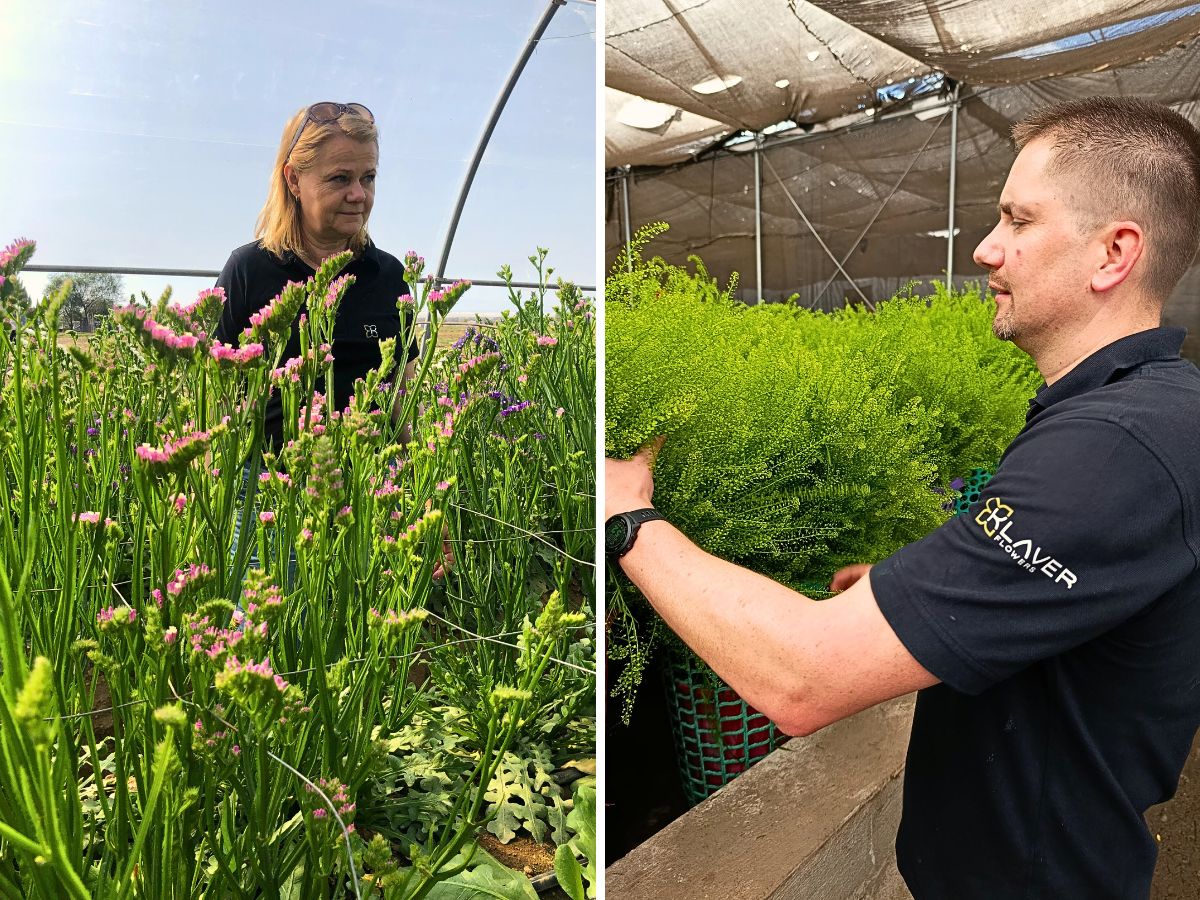
So, as Klaver Flowers continues expanding their varieties and production capacity while pursuing sustainability ideals, the grower looks all too well-positioned to maintain their key role in African flower production while advancing responsible floricultural practices.

